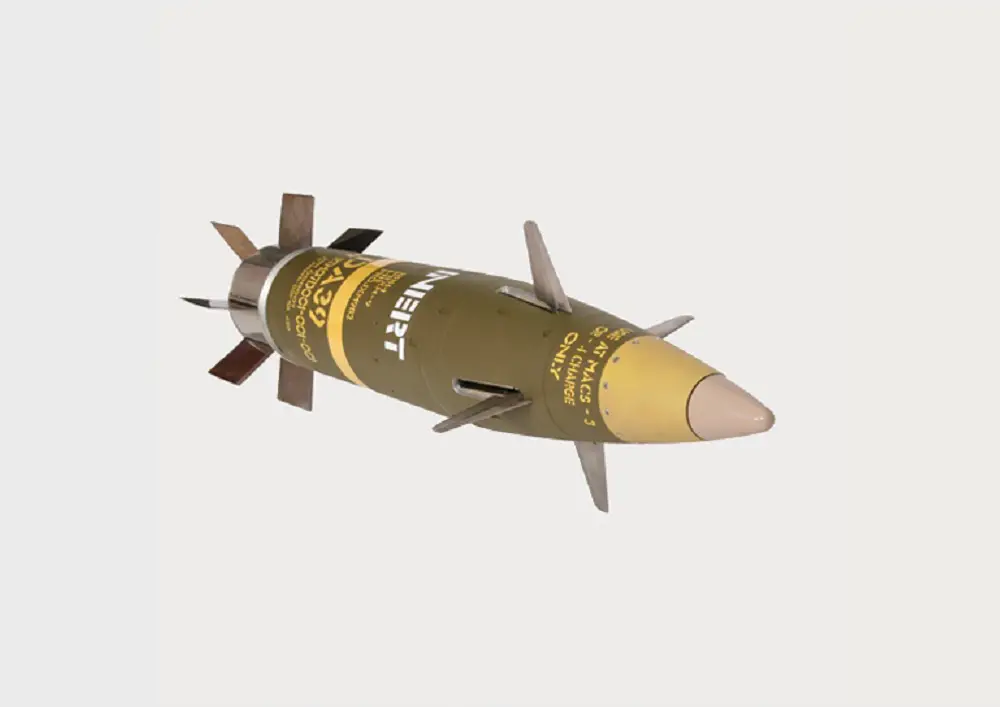The U.S. State Department has made a determination approving a possible Foreign Military Sale to the Government of Spain of M982A1 Excalibur tactical projectiles and related equipment for an estimated cost of $48.2 million. The Government of Spain has requested to buy an additional one hundred fifty-three (153) M982A1 Excalibur tactical projectiles that will be added to a previously implemented case whose value was under the congressional notification threshold. The original FMS case, valued at $21.87 million, included one hundred eighteen (118) M982A1 Excalibur tactical projectiles. This notification is for a combined total of two hundred seventy-one (271) M982A1 Excalibur tactical projectiles.
The M982 Excalibur (previously XM982) is a 155 mm extended-range guided artillery shell developed in a collaborative effort between the U.S. Army Research Laboratory (ARL) and the United States Army Armament Research, Development and Engineering Center (ARDEC). The Excalibur was developed and/or manufactured by prime contractor Raytheon Missiles & Defense, BAE Systems AB (BAE Systems Bofors) and other subs and primes in multiple capacities such as Camber Corporation and Huntington Ingalls Industries. It is a GPS and inertial-guided munition capable of being used in close support situations within 75–150 meters (250–490 ft) of friendly troops or in situations where targets might be prohibitively close to civilians to attack with conventional unguided artillery fire.

Excalibur was developed as a longer-range alternative to conventional artillery shells, with GPS guidance for improved accuracy. Excalibur has a range of approximately 40 to 57 kilometers (25 to 35 mi) depending on configuration, with a circular error probable (CEP) of four meters (13 ft), while unguided Western artillery shells can land up to 150 meters (490 ft) from the target at a range of 24 km (15 mi). While much more expensive at $68,000 per shell compared to an $800 unguided M777 shell, it is less expensive than the $150,000 rocket used in US guided-missile systems like M142 HIMARS and M270 Multiple Launch Rocket System. Excalibur’s extended range is achieved through the use of folding glide fins, which allow the projectile to glide from the top of a ballistic arc toward the target.
Self-propelled guns compatible with the Excalibur projectile are the American M109A6 Paladin and M109A7, British AS-90, German PzH 2000, South African G6, and Swedish Archer. Towed guns compatible with the Excalibur projectile are the American M198 and M777 howitzers. Excalibur ammunition was also used with AHS Krab in 2022 in combat in Ukraine, obtaining range above 50 km. The munition was co-developed by United States-based Raytheon Missiles & Defense (guidance system) and the Swedish BAE Systems Bofors (body, base, ballistics, and payload). Excalibur is used to minimize collateral damage, for targets beyond the range of standard munitions, for precise firing within 150 meters (490 ft) of friendly troops, or when terrain prevents direct fire. It has a multi-function fuze that can be programmed to explode in the air, once it hits a hard surface, or after it penetrates a target.

range, which affords possibilities to defeat point targets and to reduce safety distances. (Photo by BAE Systems/Raytheon)















